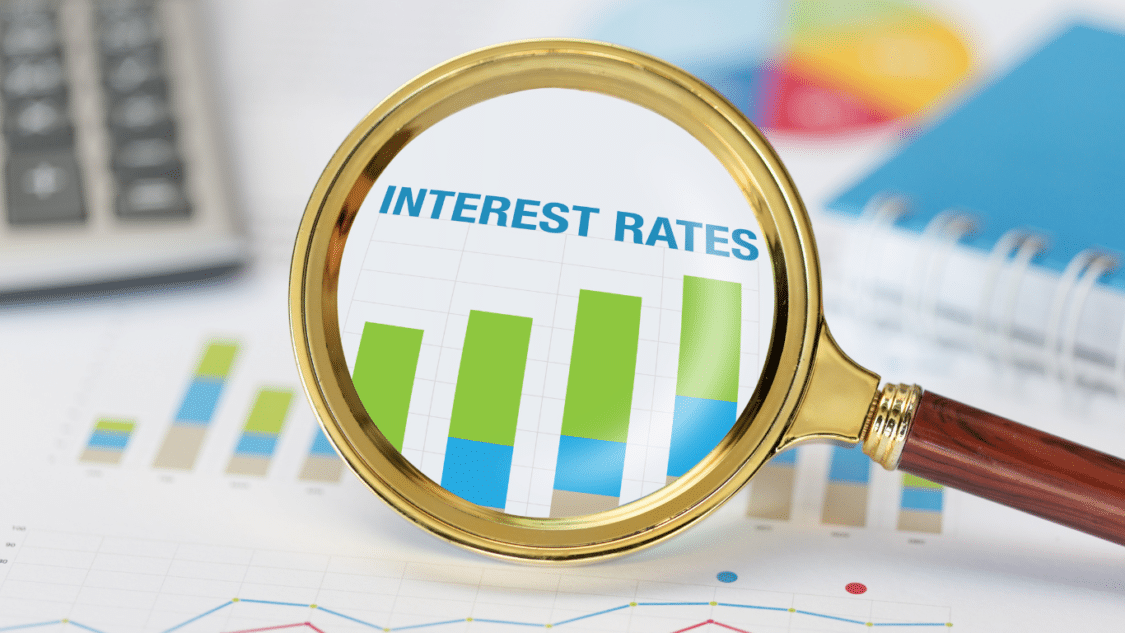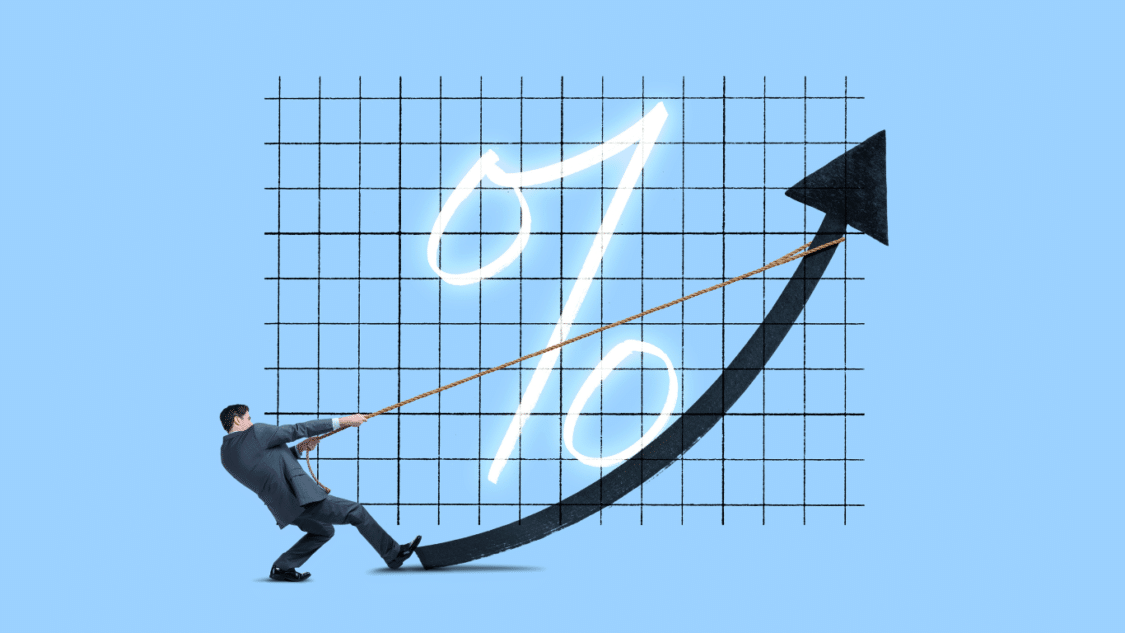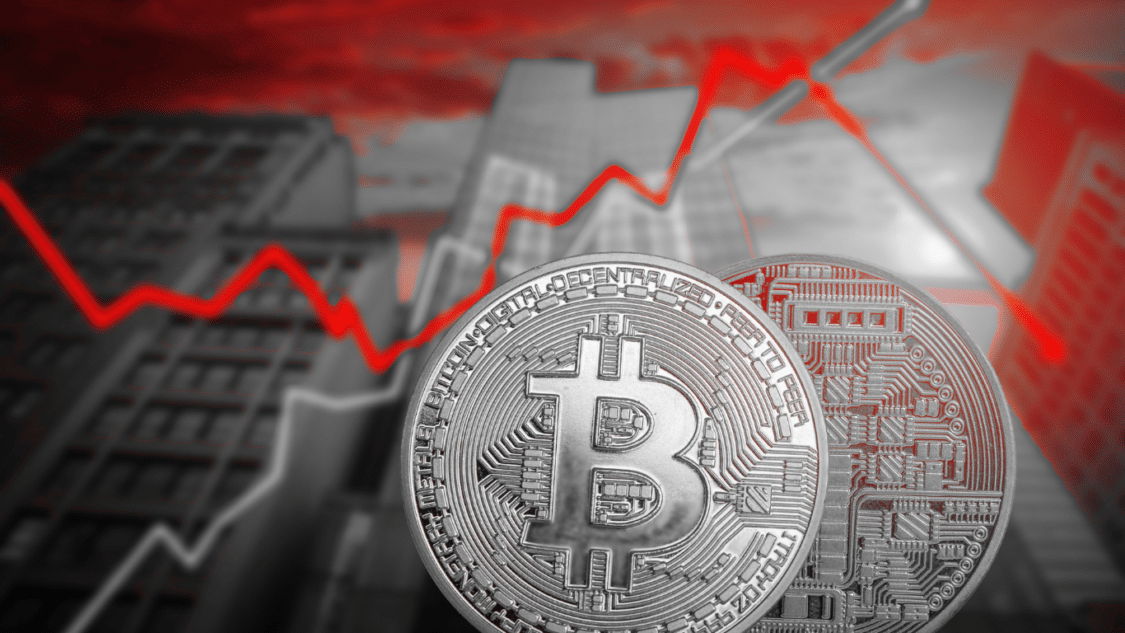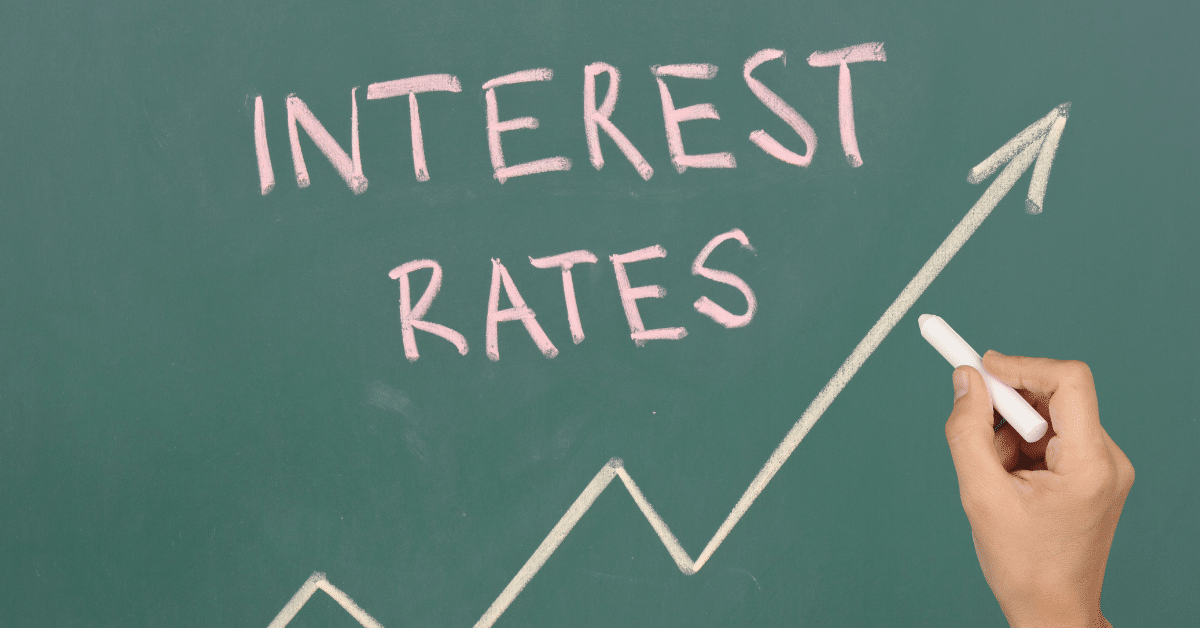Interest Rates during a Stock Market Crash is one aspect that is often affected, and can play a critical role in determining the economic fallout of a stock market crash, and can have far-reaching consequences for businesses, consumers, and financial markets as a whole. A stock market crash is a dramatic decline in the value of stocks in a short period of time. This can have a significant impact on the economy and investor confidence.

What are Interest Rates?
They are the percentage of a loan a lender charges a borrower to use their money. Central banks like the Federal Reserve in the United States typically set these rates. It is used to regulate the supply of money in the economy. This can significantly impact various financial markets, including the stock market.
How can interest rates be used?
During a stock market may be used as a tool to stabilize the economy. If the stock market is in freefall, the central bank may choose to lower interest rates. This will encourage borrowing and stimulate economic activity. This can help to offset the negative effects of the stock market crash and prevent the crash from leading to a full-blown recession.
However, lower rates can also have negative consequences. One potential downside is that lower rates can lead to inflation. As borrowing costs decrease, consumers and businesses may be more likely to take out loans and make purchases. Which can drive up prices. Inflation can erode money’s value and reduce consumers’ purchasing power.
Another potential consequence of lower interest rates is that they may not always be enough to stem the tide of a stock market crash. Suppose the underlying causes of the crash are severe, such as a recession or a financial crisis. Lower rates may not be enough to restore investor confidence and stabilize the stock market. In these cases, the stock market may decline despite the central bank’s efforts to lower interest rates.
It’s worth noting that during a stock market crash, there is a rise in this rates. This can happen if the central bank is concerned about inflation or believes that the economy is strong enough to handle higher interest rates. However, high rates can also have negative consequences. Such as slowing economic growth and making it more difficult for businesses and individuals to borrow money.
Interest Rates vs. the Stock Market
The relationship between rates and the stock market is complex and multifaceted. During a stock market crash, interest rates may be used to stabilize the economy, but they can also have unintended consequences.
When interest rates rise, it becomes more expensive for companies to borrow money, leading to a decrease in corporate profits and a decline in stock prices. This is because companies have to pay more interest expenses, which can reduce their earnings.
On the other hand, when interest rates fall, it becomes cheaper for companies to borrow money, increasing corporate profits and leading to a rise in stock prices. Lower rates can also make stocks more attractive than other investments, such as bonds, which typically have lower returns when interest rates are low. It’s essential for investors to understand the potential impacts of changes in rates on the stock market and to make informed investment decisions.
Why do high-interest rates drive the stock market down?

First, high-interest rates can make it more expensive for businesses to borrow money, limiting their ability to invest in new projects and expansion. This can lead to slower economic growth and lower profits for businesses, leading to a decline in stock prices.
Secondly, high rates can make it more expensive for consumers to borrow money. Reducing their ability to make purchases and driving down demand for goods and services. This can also lead to lower profits for businesses and a decline in stock prices.
Thirdly, high rates can make it more attractive for investors to put their money in fixed-income investments, such as bonds, rather than stocks. This often leads to decreased demand for stocks and a decline in stock prices.
Overall, high-interest rates can lead to reduced corporate profits, reduced consumer spending, and increased attractiveness of alternative investments, which can all contribute to a decline in the stock market.
Can changes in interest rates be predicted?
Predicting changes in can be difficult, as they are influenced by various economic factors and are subject to the decisions of central banks and other policymakers. However, there are some indicators that investors and analysts can use to try to predict changes in interest rates.
One key indicator that is closely watched is the inflation rate. Inflation occurs when the general price level of goods and services in an economy rises over time. To combat inflation, central banks may raise their rates to slow down economic growth and reduce consumer spending. Therefore, if inflation rises, it may signal that interest rates will also rise in the future.
Another important factor to consider is the overall state of the economy. If the economy is growing quickly and unemployment is low, it may indicate that interest rates will rise in the near future. On the other hand, if the economy is slowing down or experiencing a recession, central banks tend to lower interest rates to stimulate economic growth.
Investors and analysts may also pay attention to signals from central banks themselves. For example, suppose the Federal Reserve in the United States suggests that it is considering raising or lowering interest rates in the future. In that case, it can give investors an idea of what to expect.
Overall, while it is difficult to predict changes in interest rates with certainty, paying attention to indicators such as inflation, economic growth, and signals from central banks can provide some guidance for investors and analysts.
How can changes in interest rates during a market crash impact borrowing costs for businesses and consumers?
During a stock market crash, changes in interest rates can impact borrowing costs for businesses and consumers in several ways. Generally, borrowing costs rise when rates increase, and borrowing costs fall when rates decrease. However, the relationship between interest rates and borrowing costs can become more complex during a market crash.
For businesses, higher rates can increase the cost of borrowing to finance capital expenditures or expand operations. This can reduce business investment and limit economic growth. Additionally, high rates can lead to higher costs for servicing existing debt, which can lead to financial difficulties for highly leveraged companies.
For consumers, changes in interest rates can impact the cost of borrowing for mortgages, auto loans, and other forms of consumer credit. During a market crash, higher interest rates can make it more expensive for consumers to borrow money, reducing demand for homes and other big-ticket items. This can also impact the ability of consumers to service existing debt, which can lead to higher default rates and further economic distress.
Conversely, central banks may reduce interest rates during a market crash to stimulate economic growth and mitigate the downturn’s effects. Lower rates can make it cheaper for businesses and consumers to borrow money. This can boost investment and consumer spending. This can help to stabilize the economy and prevent a recession. Overall, changes in interest rates during a market crash can significantly impact borrowing costs for businesses and consumers. Investors should be aware of these impacts and consider them when making investment decisions.
How is the value of currencies affected as a result of interest rates during a stock market crash?

Changes in the rates can have a significant impact on the value of currencies during a market crash. When interest rates rise, the currency of the country with higher rates tends to appreciate against other currencies. In comparison, the currency of the country with lower rates tends to depreciate. Conversely, when rates fall, the country’s currency with lower rates tends to appreciate against other currencies. In comparison, the country’s currency with higher interest rates tends to depreciate.
However, in some cases, a market crash can lead to a flight to safety, where investors move their capital to safe-haven currencies, such as the US dollar, Japanese yen, or Swiss franc. This can lead to a strengthening of these currencies, even if their rates are relatively low. During a market crash, central banks may engage in quantitative easing or other forms of monetary stimulus, which can also impact currency values.
Overall, changes in interest rates can have complex and dynamic effects on currency values during a market crash. Investors should be aware of these effects and consider them when making investment decisions in international markets.
Closing Thoughts
In conclusion, interest rates and the stock market are closely intertwined, and changes in one can significantly impact the other. High-interest rates can drive the stock market down by increasing borrowing costs for companies, reducing consumer spending, and making alternative investments more attractive than stocks. On the other hand, lower interest rates can boost the stock market by reducing borrowing costs for companies, increasing consumer spending, and making stocks more attractive compared to other investments. However, it’s important to note that interest rates are just one of many factors that can affect the stock market. Other factors, such as company earnings and market sentiment, can also significantly impact.
It’s worth noting that the relationship between interest rates and the stock market is complex. It can vary depending on the specific economic conditions and the underlying causes of the interest rate increase. In some cases, a rise in rates may signify a strong economy, which can increase stock prices.
Bottom line, it’s essential for investors to understand the potential impacts of changes in interest rates on the stock market and to make informed investment decisions.
Achieving 2024 Market Profits: New Forex and Crypto Indicators




